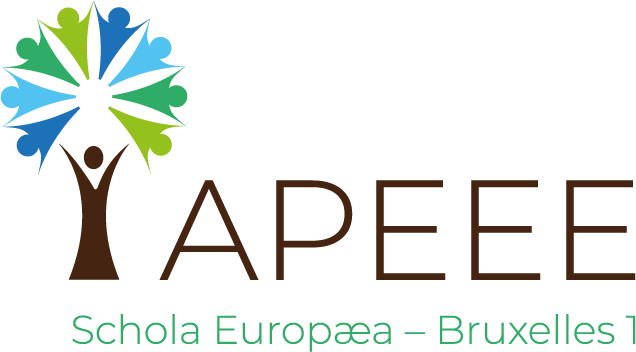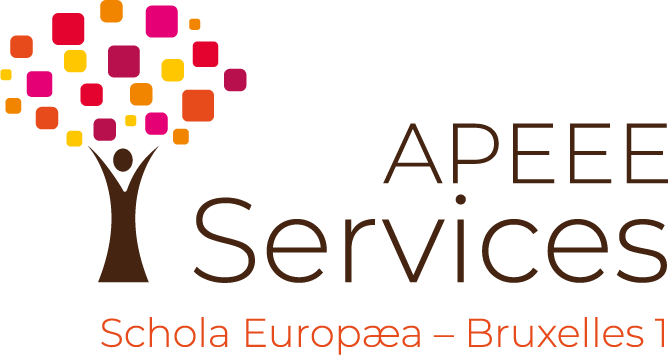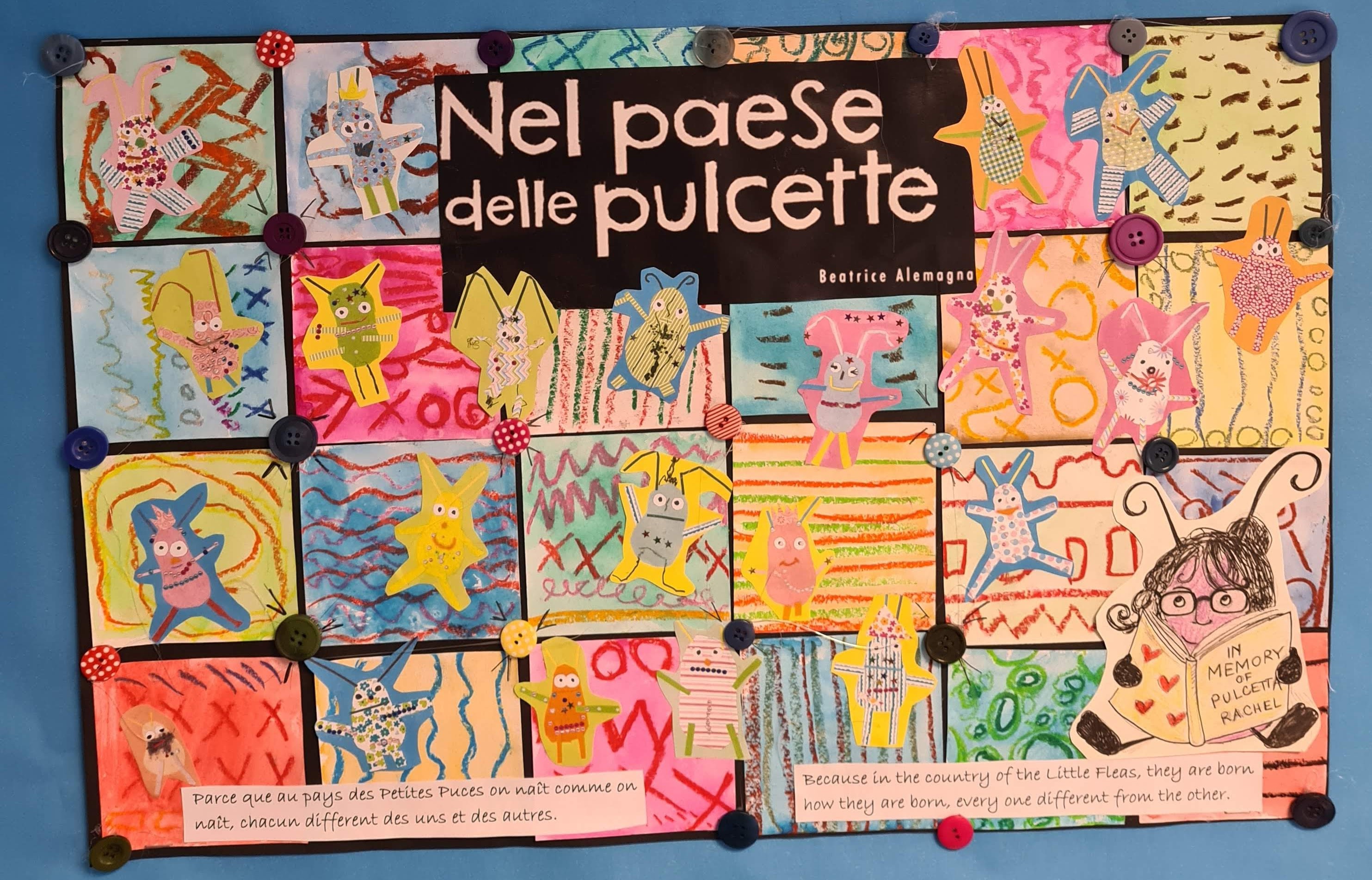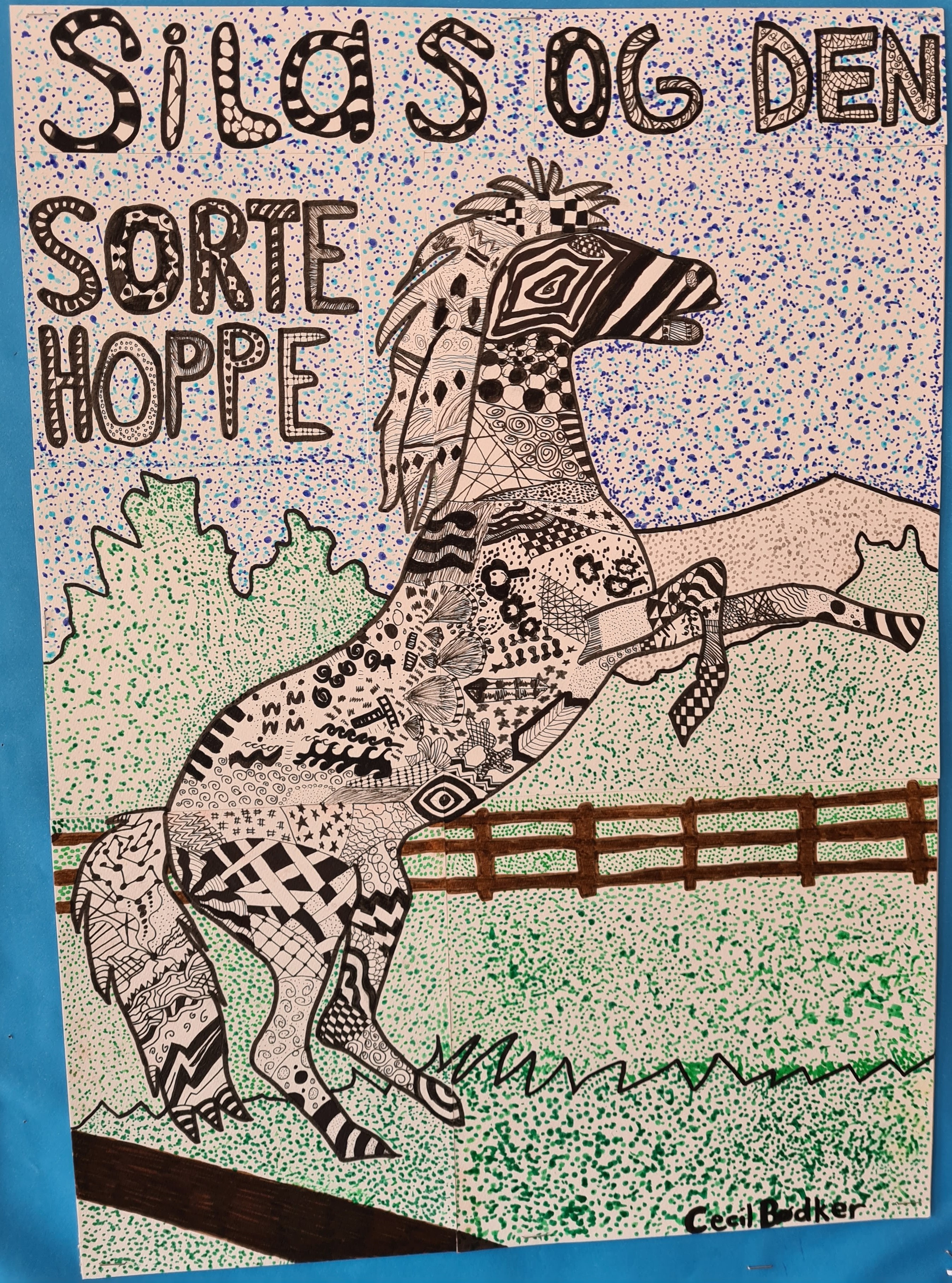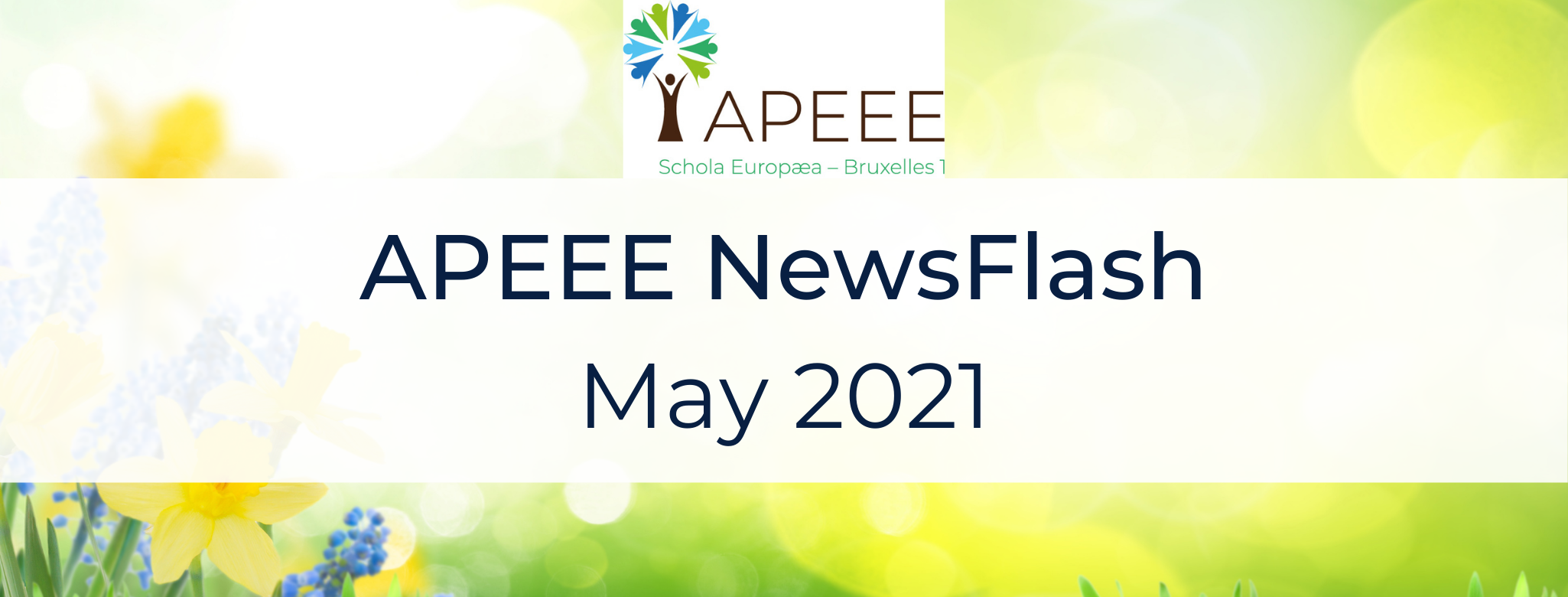
Dear EEBI Parents,
Here below you will find the APEEE’s Spring 2021 NewsFlash. This edition is brimming with content, whether your tastes run more to the general events in our students’ lives — like Uccle’s Annual Francis Pirotta Creative Arts Prize, the MAT Gardeners of Berkendael (and the foxes that lurk in the yard at night!), or our interview with a student participant in the recent Model European Council — or whether you prefer more hard-hitting news — like our articles on the new marking scale or end-of-year schedule. We hope there is something for everyone and that we have provided some interesting reading during this last break of the year and transition into the final stretch before the summer.
This edition appears at a difficult time. Last week, we learned of the tragic death of Jonatan Hönig, an S5 Finnish student at the Woluwe school. The event has shocked and saddened our close-knit Brussels European School Community, and we offer our deepest sympathy to his family and schoolmates. We take this moment to draw your attention to two charities that his family has supported for those wishing to commemorate Jonatan:
- Asbl ACTION FOR TEENS: a European network of experts and psychiatrists helping adolescents in psychological need with the appropriate support. Financial contributions can be paid to account number IBAN: BE55 0688 8890 0044, BIC: GKCCBEBB, communication “Support Action for Teens”.
- Asbl ABAKA: offers support services for young people (12 to 18 years old) facing crisis. Financial contributions can be paid directly to account number IBAN: BE80 0013 9899 0277, BIC: GEBABEBB, communication “Your email” OR through the Arc-de-Ciel service to account number IBAN: BE41 6300 1180 0010, BIC: BBRUBEBB, communication “Don au projet n° 196”.
Katie Máthé
APEEE President
Uccle Gets a Fresh Coat of Paint
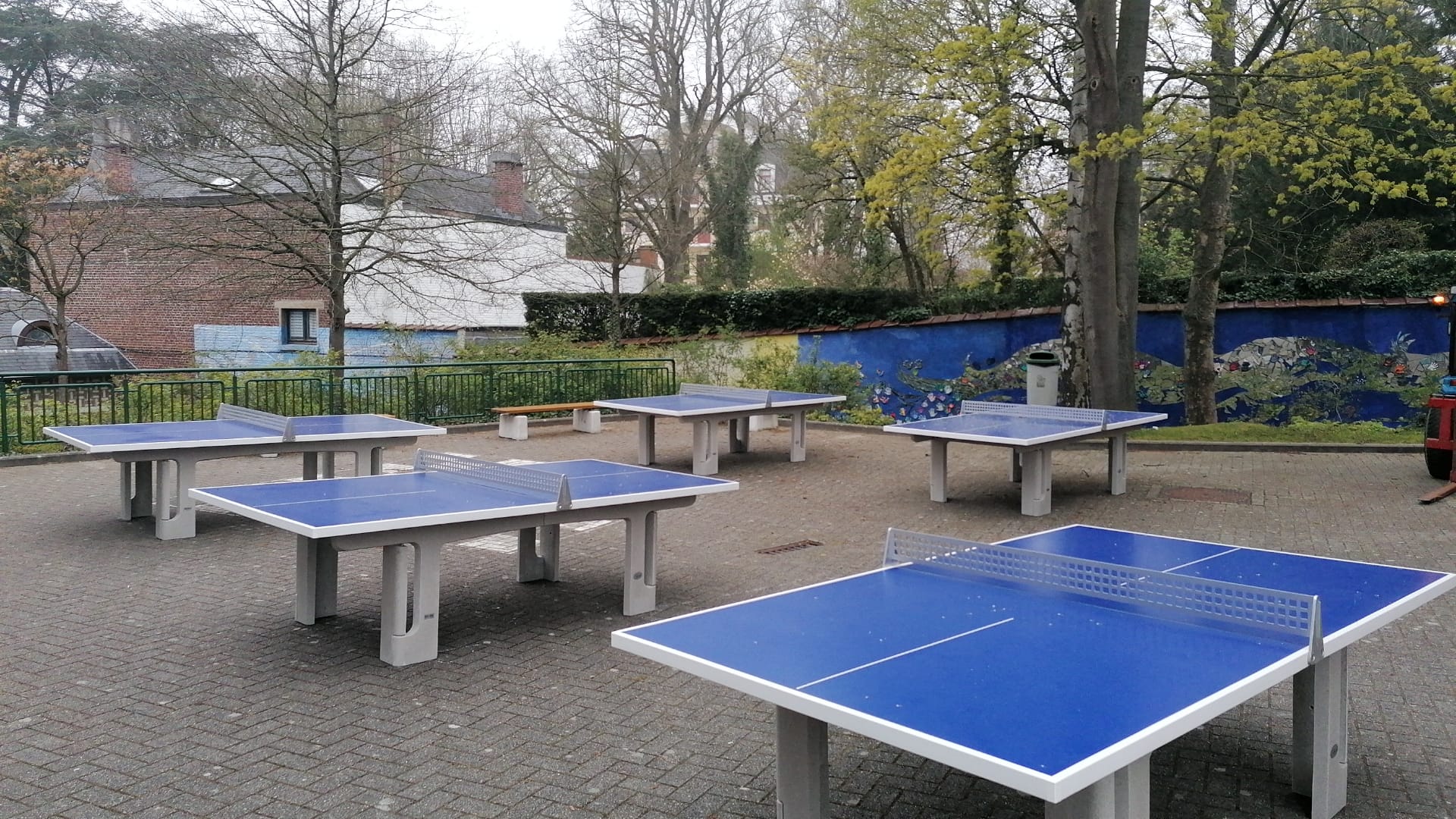
The Uccle campus has undergone extensive improvements over the last months, including the creation of some great new hang-out spots for students during COVID-19 and beyond. The school has kindly shared a presentation with us showcasing, inter alia, the new S1-S3 study hall and BYOD space; ping pong zone; outdoor seating/picnic tables; and Fabiola sandbox and ground cover. You can view the photo presentation.
APEEE Membership Fee 2021-2022
At the beginning of June, you will receive an automatic payment request for your APEEE annual membership fee of 50 EUR for the next school year (2021-2022). We wanted to take this opportunity to remind you that being a member of the APEEE is a requirement for access to the services provided by our sister association APEEE Services (transport, canteen in Uccle, lockers, extra-curricular activities) as well as for receiving APEEE mailings and serving as a parent representative.
We note that starting this year we will be blocking access to services in late September for all those who are not paid-up members of the APEEE. We wanted to highlight this already now to give parents plenty of time to arrange payment in advance. Detailed instructions will be sent closer to the payment period.
The APEEE Membership Fee is 50 EUR per year per family. This fee is necessary to keep the APEEE Secretariat and Board functioning properly. The APEEE is a volunteer organisation in which elected parents work hard on behalf of all families attending EEBI, and the APEEE fee provides back-office support for these efforts. The fee also gives the whole parent community access to our website, funding calls, communication channels (this NewsFlash for instance!) and parent advocacy structures as well as daily support with their questions and concerns.
We will be available for any questions or issues you have with the payment, so please do not hesitate to contact us: info@uccleparents.org
Issues and Positions: Recent Developments
COVID-19 Update
The APEEE launched its COVID-19 Update page in October 2020 in response to parent requests for a “one-stop shop” for current communication from EEBI management on COVID-19.
See: COVID-19 Update
Brussels European Schools End-of-Year Schedule
As parents are aware, the school has decided to shorten to half days the end of the school year in order to allow for an internal discussion and analysis of students’ progress while ensuring that staff will not need to remain in class councils during late afternoon and in some cases into the evening as is the usual practice. Nursery to S3 classes will be taught for half days as from 22 June. S4-S6 classes will end between 23 and 28 June depending on the year level, with some half and some off days dedicated to make-up B tests.
Many parents are concerned by this decision, not only for the personal and professional added burden of taking care of younger children during official working hours/days, but because of the pedagogical impact added onto what is already perceived as a deteriorated pedagogical situation – with classes struggling to complete the year’s curriculum. While other Belgian and international schools are trying to find ways to extend the pedagogical activity, EEB1 is headed in the opposite direction. This has been a difficult year for all members of the school community, and we deeply appreciate the dedication of hardworking teachers over these long months. At the same time, it is important that the school address the pedagogical, psychological and social stress felt by the whole community, including our students.
On 20 April, the APEEE President sent an Open Letter to the Director pointing out that the measures contravene the Rules of the European School with reference to the APEEE’s long-standing position on 180-days of school. The management’s decision was not presented to the EEBI Administrative Board or other higher instances. The APEEE Board will take further steps.
See also: Issues and Positions – 180 Working Days for Pupils.
European School Parents Present to EP’s CULT Committee
On 25 February 2021 the European Parliament’s CULT Committee hosted several presentations on the current situation in the European Schools; presenters included INTERPARENTS President Pere Moles-Palleja, Ixelles APEEE President Anastassios Papadopoulos and Deputy Secretary-General Andreas Beckmann. The presenters also fielded questions from Committee Members on particular topics of relevance to the schools. See original 25 February transmission.
In March parents followed up with separate written communications from INTERPARENTS and the Brussels APEEE Presidents to CULT Committee Chair Sabine Verheyen and other Committee Members. The INTERPARENTS Letter highlighted key issues including: cost sharing, lack of legal remedies, the new marking scale, and student well-being. While the APEEE Presidents’ Letter called for improved governance and particularly for a stronger involvement of the Commission and DG EAC in the pedagogical programme and oversight of the schools.
In response, CULT Coordinators have recently asked the EP’s Policy Department for Structural & Cohesion Policies to commission a comprehensive study looking into the state of the schools and challenges they face as well as possible directions for future development. The study will serve as the foundation for future decisions by the Committee.
New Secondary Marking Scale and University Admissions: Translation of the EB at National Level
This year’s European Baccalaureate (EB) will be exceptional, not only because of the rough year and a half for our S7 cohort, but also because it will be the first year that the New Secondary Marking System will be used for the Baccalaureate exam. There is inevitably some anxiety about the application of the new competence-based system and the training of external markers, but the biggest concern is around the national equivalence tables produced by education ministries across the EU to translate EB results under the new system for the purpose of university admission.
Parents have known for a while about the recent devaluation of the BAC in Germany and longer standing problems with the Danish equivalence, but as more tables have appeared, it is clear that the problem is more widespread. What remains unclear is whether the devaluation of our marks is the result of a change in the perception of the quality of our system and the level of our students, or rather — as we suspect — a misunderstanding of the nature and effects of the new marking system. It has not helped that the S6 results data that might have been used by national ministries to check and recalibrate tables is not available—or rather, due to the effects of COVID-19 is considered aberrant.
INTERPARENTS (IP) has sent a Letter to the April Board of Governors, laying out parents’ concerns directly to Member States. The letter contains several supporting annexes including guidance provided to national ministries (Annex A, Annex B) and a short analysis comparing a sampling of old and new tables. IP will be closely monitoring the situation.
Overcrowding in the Brussels Schools – Evere Update and Price Waterhouse Cooper Audit
On the night of 27 April, a fire broke out on the construction site of the temporary campus at Evere. Several of the prefabricated elements of the quick-build modular construction were damaged by both the fire and water that was used to douse the flames. There were already fears that the campus would not be finished by the rentrée in September 2021, and this setback has only compounded them.
For more information, see also:
Message from the Woluwe Director (April 2021)
OSGES Communication concerning the Evere site of the European School, Brussels II (28 April 2021)
The campus is set to open as a Primary extension to EEBII-Woluwe with a capacity of 1500 pupils. In the first year, just under 500 pupils are expected to enrol in mostly lower Primary and Nursery classes in FR, EN, DE and IT sections. Contingency planning in case the site cannot open its doors on 1 September has already begun, and there is currently a search for alternative facilities that might house these children until the campus can open.
In relation to this, in spring 2021 professional services firm Price Waterhouse Coopers (PwC) is carrying out a capacity audit of the European Schools in Brussels. The study was contracted by the Secretary General’s office in response to parents’ long-standing concerns about over-crowding. The audit is being carried out at all four Brussels Schools and is considered four separate projects. The main objective of the project is to study the maximum capacity of each European School in order to ensure safety, security, wellbeing and the smooth and efficient working of the school. The project has thus far entailed a kick-off meeting, site visits to both EEBI campuses, interviews with key staff, and a mid-term meeting with preliminary analysis. The final version of the study should be published in late-May.
See also: Issues and Positions – Future of the Brussels Schools
This month’s featured projects
3rd Francis Pirotta Creative Art Prize - Uccle
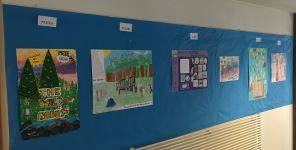
It is the 3rd year that the EEB1 Nursery and Primary remembered with a creative arts competition former little student Francis Pirotta, who left us so tragically in the spring of 2018. The theme of this year’s 3rd Francis Pirotta Creative Arts Prize was inspired by Francis’s own interest in stories, poems and comics. Students were asked to design a cover for a book, a short story or a poem that they read in their class. This collective project enabled teachers and students to reflect on the visual aspect of their literary subject. The students had the freedom to use any artistic technique that they wished. The works of the classes have been exhibited along the corridors of the Erasmus building, and can be seen in this photo gallery as well.
The jury, consisting of teachers, the Pirotta family and a parent representative from the APEEE, delivered their decision on 23 of April. “It is incredible how much effort the children have put into this project,” noted APEEE representative of the jury Mr. Dragos Trusca. “They should all be congratulated for these beautiful works of art. Teachers have done an excellent job to inspire and guide the blossoming painters,” he added.
The winner in Category 1, which included Nursery (MAT) and P1-P2, was the class MAT IT. In Category 2, consisting of P3-P5 classes, P4 DA won the first prize. The two winners will have their work framed and hung in the Fabiola Library (MAT IT) and the Erasmus Library (P4 DA). Each student, teacher and class assistant of the winning class will receive a T-shirt with the printed image of their work. All the participating classes will get a diploma in acknowledgement of their work.
This year’s exhibition has been dedicated to the memory of Ms. Rachel Napthine who taught Francis in the Nursery and nourished his love of stories.
Congratulations to the winners, teachers, parents and friends in all the participating classes. “The experience was very personal and it brought joy to think that others also shared and understood our feelings,” remembered APEEE representative of the jury Mr. Trusca.
Winner of Category 1 (MAT, P1, P2): MAT IT
Winner of Category 2 (P3, P4, P5): P4 DA
The Francis Pirotta Creative Arts Prize is partially funded by the APEEE and supported through the hard work of a dedicated team of teachers. Rachel Napthine was a guiding force in its success.
Child Gardeners in Berkendael
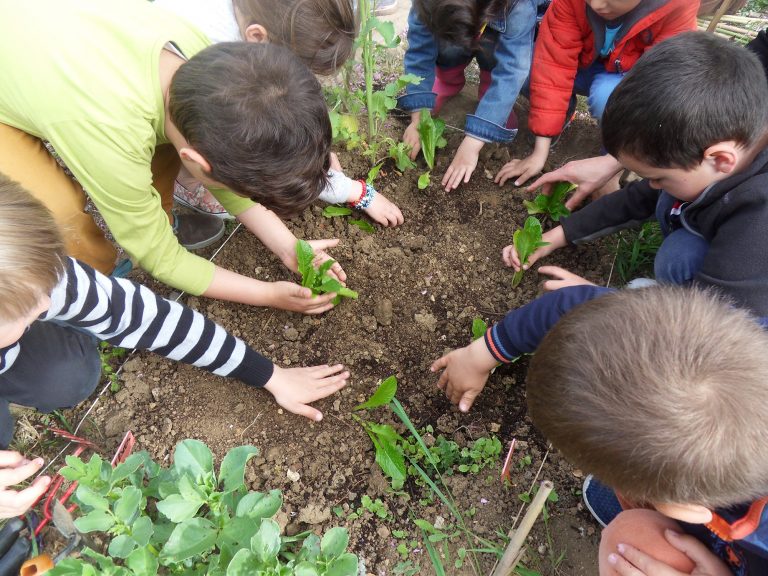 The child gardeners of Berkendael have worked assiduously to make their site greener and more eco-friendly. Read more about this joint FR-DE Nursery project, funded in part by APEEE, in this short photo report (text in FR and DE only) on the EEBI website.
The child gardeners of Berkendael have worked assiduously to make their site greener and more eco-friendly. Read more about this joint FR-DE Nursery project, funded in part by APEEE, in this short photo report (text in FR and DE only) on the EEBI website.
Apply for Project Funds Now!
The APEEE Spring 2021 Call for Project Proposals is currently open. Submit applications by Friday, 21 May to our APEEE Call for Projects submission form.
Working Groups in Focus
PedGroup Educational Technology group: From Distance Learning to Digital Learning
The APEEE PedGroups’s Educational Technology (EdTech) group is currently working on digital learning from several different perspectives:
- monitoring the school’s roll-out of Geogebra and BYOD;
- helping families to obtain devices that meet specifications;
- supporting the use of Microsoft TEAMS for Education;
- seeking improved guidance and training for the whole school community on the use of digital tools.
In December, the group received APEEE funding to organise live online TEAMS training events for parents in cooperation with the other three Brussels APEEEs and the Central Office’s Pedagogical Unit. The four sessions in FR/EN for Primary and Secondary parents of all four school were run by professional trainer Laurent Carlier and took place between 22 and 26 March. You can find the recordings and supporting documentation on the APEEE YouTube channel.
The project was also an opportunity to establish key links with EEBI teachers, management, student representatives and even inspectors, who were invited to attend as dignitaries. The EdTech group presented a report on project results and possible next steps to the APEEE Board in April.
The EdTech group is currently working with INTERPARENTS to analyse the roll-out of Geogebra/BYOD across the system. We are also working with the school to identify vendors that provide quality learning devices and necessary support. Finally, we are involved with the students and teachers of the Secondary CE in creating TEAMS Guidelines for the Secondary school community. Watch this space…
See also: Working Groups - Pedagogical Working Group (PedGroup)
Well-Being Working Group: High Five!
Assuring the well-being of our students is one of the pillars of the APEEE’s work. We believe that every child must have basic wellbeing to be able to learn and flourish. Learning is not possible when you do not feel safe. Learning is not possible if you feel alone, have fear and experience bullying or exclusion. Learning is not possible if you are tired, hungry or not getting fresh air.
The APEEE’s Well-Being Working Group has launched several initiatives for students’ well-being during the pandemic, most recently:
- APEEE conference: "Parenting teenagers: an evolving challenge" (30 April 2021). Unfortunately a recording of this conference is not available
- APEEE information session: "Teenagers and families: how to cope with this difficult period" (4 May 2021). A recording of this session is available upon request to communication@uccleparents.org
A conference on “Internet, Social Media, Videogames and Pornography” is tentatively planned for June 2021.
In the meantime, we are also making good progress in the school-level working group to develop a Child Protection Policy. The policy aims to put in place key structures (e.g. safe rooms, personnes de confiance), procedures (e.g. for reporting incidents) and curricular elements. It will also serve as a basis for more targeted policies on: Drugs and Addictions, Bullying, Online Safety among other things. At the same time, we are taking part in dedicated working groups to develop Mobile Phone and Drugs and Addiction Policies. And we are hoping to integrate well-being and prevention activities (Belgian EVRAS, DRUGS, Values, Mindfulness) into the curricula as well as to support and complement KiVa in the Primary. Please see our recent strategic vision paper.
The APEEE Well-Being Working Group aims to work on mental health in 360 degrees. We understand that the school, as a big institution, will move slowly even if all are willing and capable. We are collaborating with the school psychologist, the Student Committee, other EEB APEEEs and INTERPARENTS to also address key issues globally through common policies and instruments.
See also: Well-Being Working Group
See also: Issues and Positions – Child Protection
High Five
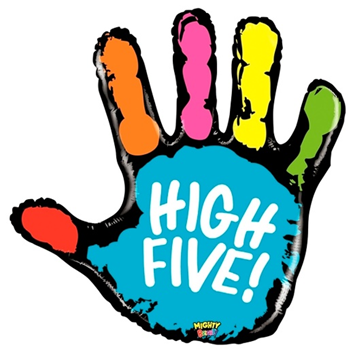
We would like to give all students and parents a big HIGH FIVE! You are all doing a great job getting everything to work during distance learning. Distance learning is not only about physical distance from the school, but it is also a mental, social and very personal transformation. To be taken out of your known school environment with its familiar educational culture, rules, habits and atmosphere and to be put home in your room, in your kitchen or even on the sofa and still to sustain the motivation and the level of engagement while grappling with new procedures and technical issues...it is not an easy task. You have been doing it for quite a while now – some of you for short periods and others for longer periods and/or in rotations of every second day. We think you are all doing a great job! But you may still feel warn out, tired of the situation or even lonely or depressed.
With this in mind, the Well-Being Working Group has created a HIGH FIVE for your child(ren) and for you as a parent that gives you a bit of support and advice on well-being. We encourage you to print it out and put it somewhere to be seen every day, so you remember the little things that can make a difference to your well-being. Talk it through with your child and partner. Discuss the five fingers in the hand of the high five and reflect on your way of dealing with distance learning. Give a HIGH FIVE to your child and partner for all the things that you are doing for your well-being!
![]() “HIGH FIVE” - A helpful guide for students during distance learning -
“HIGH FIVE” - A helpful guide for students during distance learning -
Primary students | S1-S3 students | S4-S7 students
![]() “HIGH FIVE” - A helpful guide for parents to support students during distance learning -
“HIGH FIVE” - A helpful guide for parents to support students during distance learning -
Primary parents | S1-S3 parents | S4-S7 parents
More to come...
In addition to our standing working groups (Pedagogical, Well-Being, Community Building, Legal, Communications), the APEEE is currently participating in a bevy of task-oriented working groups with management, teachers and students in different constellations. Groups include:
- Child Protection Policy – APEEE delegates: Sara Dagostini, Pere Moles-Palleja
- CE Rules of Procedure – APEEE delegates: Pere Moles-Palleja, Nils Behrndt (replaced by Monika Velikonja)
- EEBI Communication Policy – APEEE delegates: Simon Derry, Thomas Spoormans
- Homework Policy and Distance Learning – APEEE delegates: Kathryn Máthé, Isabel Vicente Carbajosa
- Mobile Phone Policy – APEEE delegates: Noémie Beigbeder, Caroline Cambas
- Vending Machines – APEEE delegate: Samantha Chaitkin
A standing working group has also been created with the school on Classes Transplantées followed by István Vanyolos and Brian Gray from Uccle and Sara Martelli and Benjamin Pelletier from Berkendael.
See also: APEEE and EEBI
What’s On in Primary?
Berkendael Nursery Celebrates
Berkendael MatFRe, MatES and MatLV have formed a festive alliance and have together organised two grand celebrations to mark key events this year. See photos in the short report of their Carnival celebrations and the short report of their Europe Day celebrations. We can all learn a lot from this transcontinental alliance...they really know how to have a good time!
100 Days at School at P1 Uccle
Every year P1 classes celebrate the first 100 school days. Usually it is a big level-wide event. They generally make a museum with all the different class collections of 100s, and invite everyone to come and visit. Sometimes they invite parents as well and share their exhibits with them and each other.
This year’s celebration, like everything else, has been marked by COVID-19 restrictions. P1 classes still celebrated the first 100 school days, but separately. All the P1 classes made exhibitions in their own classrooms as well as in the hallways of the Erasmus Building. You can look at the creations of the 100s of the children in this photo gallery.
Anti-bullying KiVa programme continues at EEB1 Primary
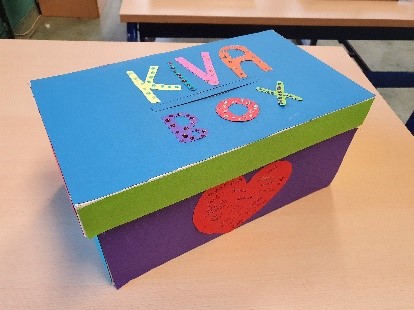
Uccle P2-P5 classes have continued carrying out activities within the KiVa programme designed to combat bullying and to promote the prevention of bullying in the school environment.
According to this year’s KiVa schedule, classes have had one KiVa lesson in the last week of each month. In this year’s first KiVa week, the programme was launched with an anti-bullying video via TEAMS. In the second KiVa week, P2-P5 classes prepared KiVa Boxes. These boxes are being used to collect letters from those students who feel bullied or consider themselves eyewitnesses of bullying in the school. In February, teachers were asked to send a photo of their class’ KiVa box. These photos have been decorating the corridors in seven different places in the Primary buildings (see photo below). The P2-P5 have been working since March on a KiVa Puzzle.
The KiVa programme was originally developed in Finland. EEBI has been following it since 2016. Every year specific activities have been chosen and carried out by our Primary classes according to a pre-set schedule. Projects from previous years can be browsed through on the school’s website: KiVa - Uccle site and KiVa - Berkendael site. Teachers have the possibility to use PowerPoint presentations and videos during KiVa lessons. These materials along with detailed introduction on the KiVa programme can be found on the KiVa programme website.
Von der Leyen’s Response to Uccle’s P5 Green School kids!
European Commission President Ursula Von der Leyen rediscovered her former school in April when she was contacted by P5 students from Uccle’s Green School project. See the article in EurscMag and Ms Von der Leyen’s Instagram post.
What’s On in Secondary?
EEB1 hosts Model European Council of the European Schools – Interview with EEB1’s delegation member, S5 student Robin von Breska
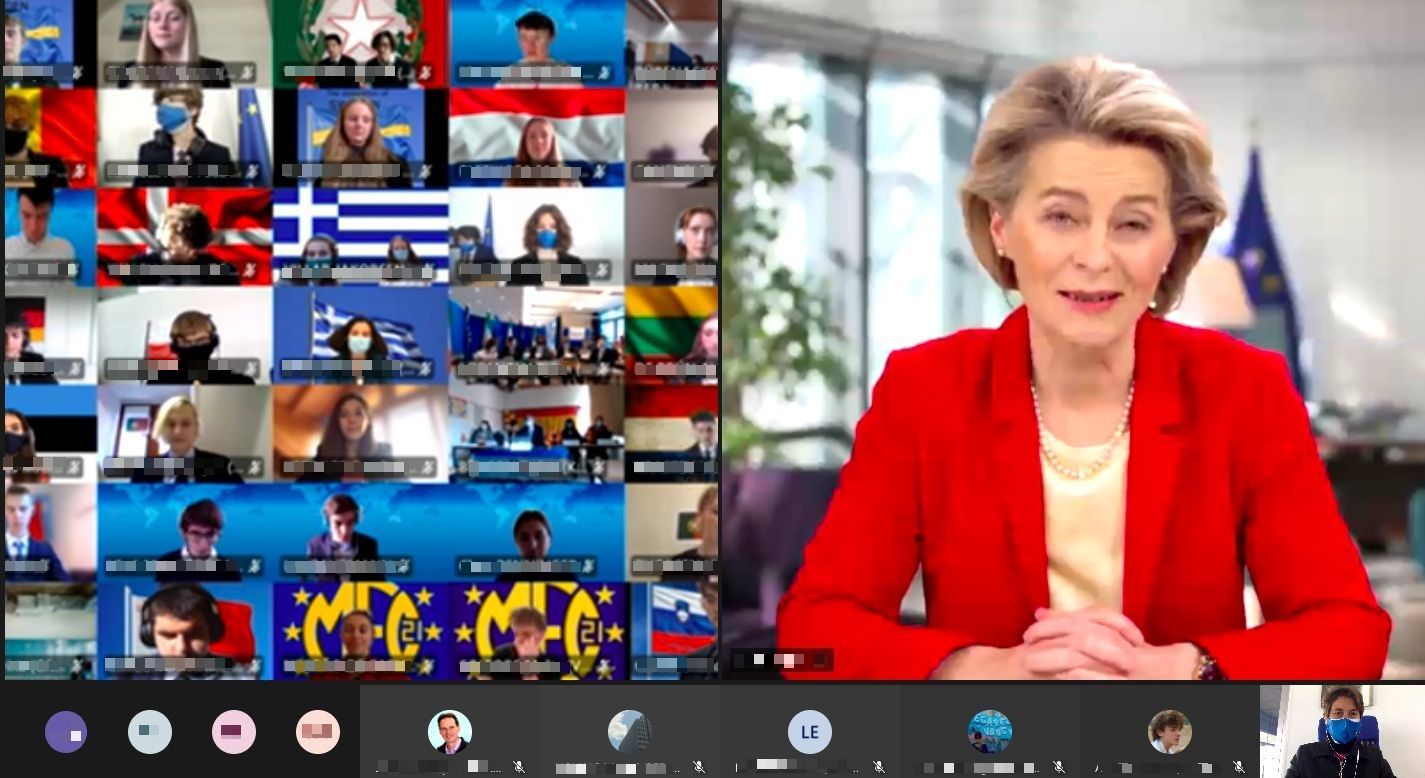
The Model European Council (MEC) is a complex simulation, a role-playing exercise that Secondary school students of all the European Schools have taken part in every year since the 1980s. This year, between 15 and 19 March, EEBI hosted the one-week event online.
We asked Robin von Breska, S5 DE student member of the EEBI delegation and one of the two CoSup representatives of the EEB1 students, to tell us about his first-hand experience of the debates, as well as about what he brings home from this traditional event including all European Schools. Interview – via Zoom – by APEEE NewsFlash Reporter parent Eszter Rumbold-Molnár.
Read the full interview with Robin von Breska.
Student Committee (CdE) Humanities Festival
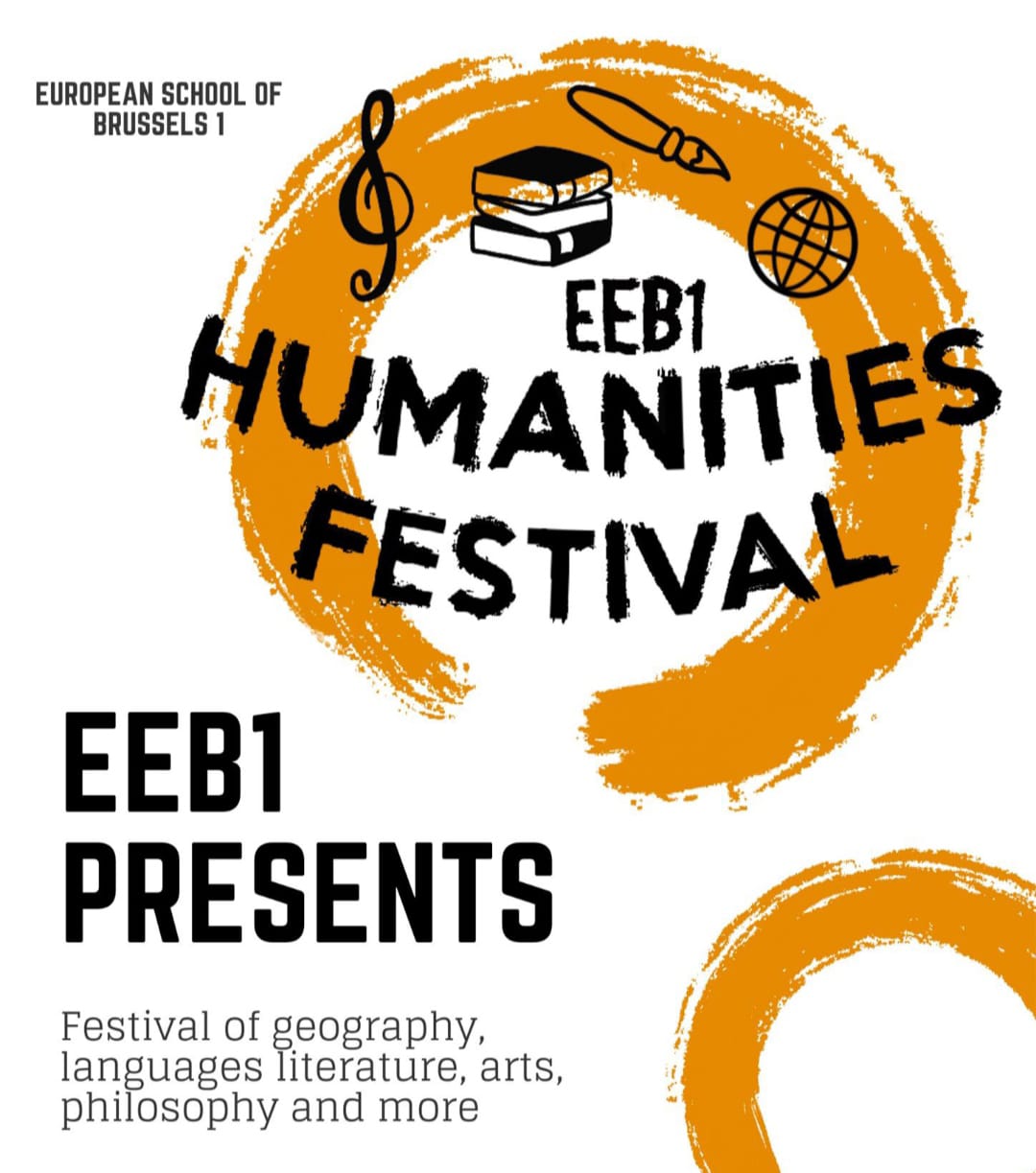
After years of EEBI hosting a successful ‘Science Festival’, the Student Committee (CdE) inaugurated the first edition of a new ‘Humanities Festival’ on Wednesday, 28 April. The project, which has been in the works since start of year, is open to all of secondary students. It aims to promote student talent in and appreciation of the arts and social sciences. Due to COVID–19 restrictions, the event was online. Yet it was still exceptionally handled by the main organisers: Carlotta Koning (S7ITa) & Ilias Kikiras (S6DEa).
The festival began with an opening speech by Director Brian Goggins. Each contestant presented a project that had been sent in advance, following the given theme: ‘Cycle of Life’. Projects included: a video critique of capitalism, original poetry, a collaborative interpretation between writer-artist-animator, and instrumental spoken-word poetry among other things. “We were pleasantly surprised at the diversity and richness observable, from sculptures to poems. It was extremely interesting to see what approach each pupil opted to take,” stated one of the judges. The prizes were awarded according to age categories: Junior (S1–S3) and Senior (S4–S7). The judges were made up of a panel of teachers and students specialising in different fields. Judges were not assigned according to specialisation but were mixed to reflect a range of perspectives and to avoid disciplinary bias.
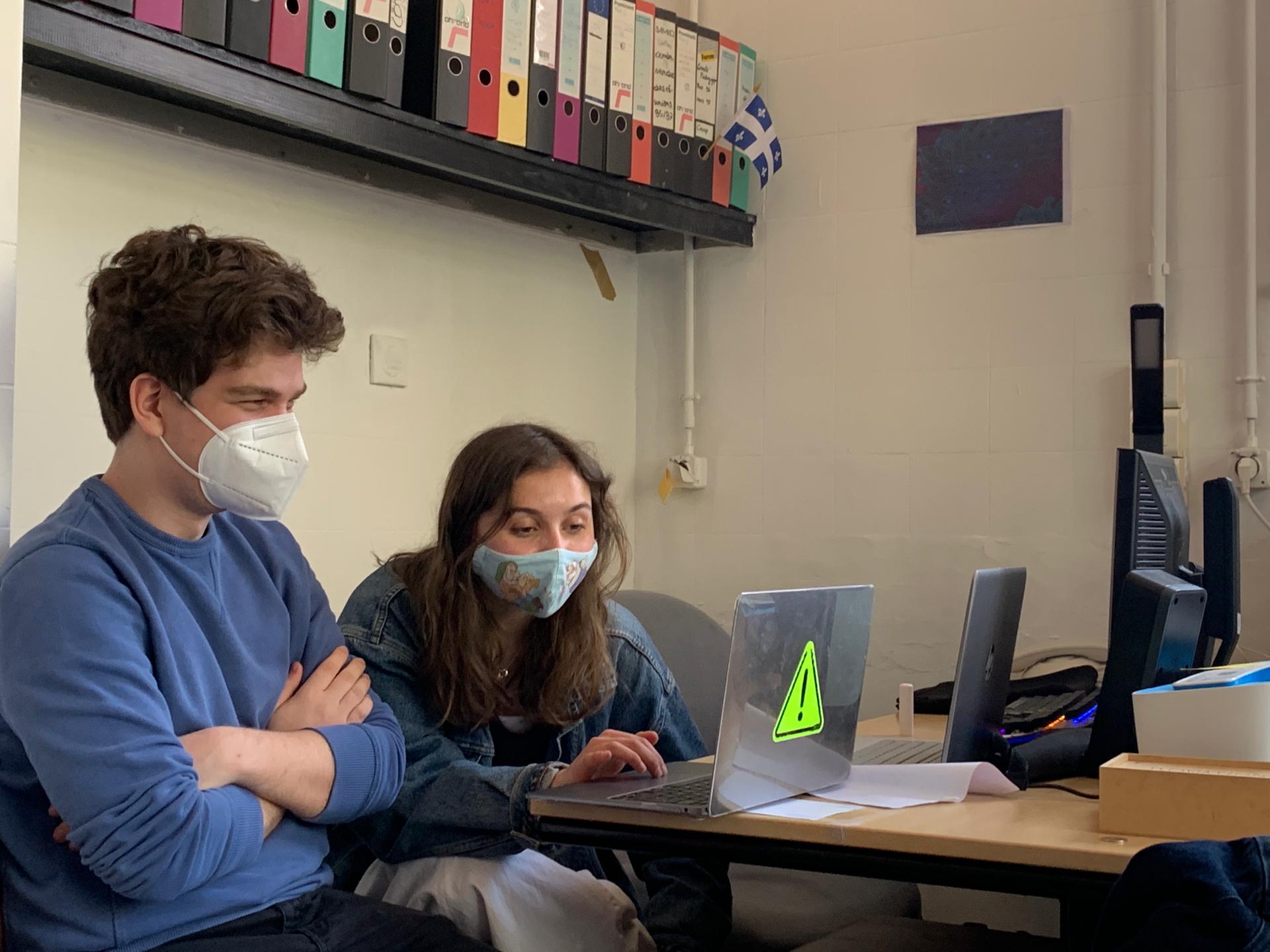
Organisers: Ilias Kikiras (S6DEa) & Carlotta Koning (S7ITa)
ESB Octopus, the swimming team of the European Schools, obtains 26 medals at the end of the short 2020-2021 season

The restrictive measures to fight the COVID-19 pandemic have severely affected the swimming season of the ESB Octopus. We were only able to participate in three competitions between September and November 2020: two in the Olympic pool of La Louvière and one home meet in CERIA, Brussels.
Despite these limitations, the European Forces Swim League (EFSL) decided to distribute the medals of the season based on the best performances, instead of organising the traditional finals (“Champs”) in Eindhoven with all teams of the league. The ESB obtained 26 medals. Congratulations to all swimmers who were active and competed despite the difficult situations, and especially to the medalists: Alexia Salgado (Uccle, two medals), Ioana Vasilescu (Woluwe, two medals), Mathilde Peeters (Woluwe, one medal), Attila Sallai (Uccle, six medals), Alberto Alquézar Pomar (Ixelles, one medal), Rodrigo Alquézar Pomar (Ixelles, eight medals) and Peter Somogyi (Ixelles, six medals).
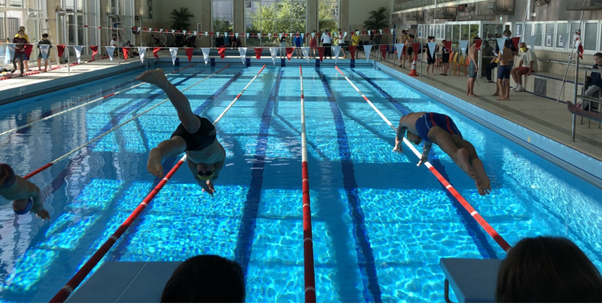
In spite of the difficult and disappointing season, we remain motivated to come back to normal in 2021-2021 and we are looking for new swimmers! Interested? For more information, please visit the Octopus website or contact us: team.esb.octopus@gmail.com.
Slovenian Cultural Celebrations at EEB1
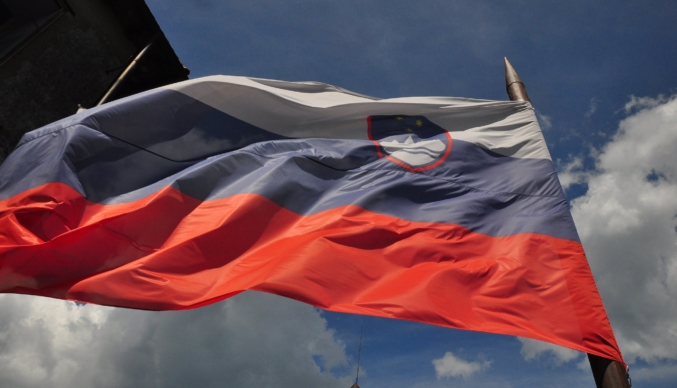
On the occasion of the Slovenian Cultural Holiday, celebrated on 8 February, the Slovenian Section of EEBI compiled a wide range of performances and creations, prepared by Slovenian students of the Nursery, Primary and Secondary levels. Poems were recited, songs sung, theatre scenes performed, animation films and art works prepared etc. to celebrate Slovenian culture. You can find a short report containing videos of the performances, as well as some photos, posted on the Facebook page of the Slovenian Embassy in Brussels.
The young performers presented their talents under the mentorship of Slovene teachers Ms. Mateja Kregar (Nursery and Primary), Ms. Renata Čampelj Jurečič and Mr. Martina Tomšič (Secondary).
The Slovenian Cultural Holiday, or Prešeren Day, commemorates the death in 1849 of Slovenia’s greatest poet, France Prešeren. The Slovenian anthem is based on one of his poems, the first line of which can be seen in Brussels translated to all EU languages on a monument situated near the Schuman roundabout (placed there during the 2008 Slovenian presidency).
Foxes in the Yard
 Foxes have been attracted into the city by the prospect of easy food sources. At Berkendael School there have been a number of sightings of foxes in the grounds. The school therefore contracted a Flemish organisation to monitor the activity of the foxes. The company set up static cameras for two months and visited the site regularly. The information they gathered showed that indeed the foxes did come onto the campus and they were more active when the school was closed due to the lock down. The foxes were not present on the site when kids returned to school.
Foxes have been attracted into the city by the prospect of easy food sources. At Berkendael School there have been a number of sightings of foxes in the grounds. The school therefore contracted a Flemish organisation to monitor the activity of the foxes. The company set up static cameras for two months and visited the site regularly. The information they gathered showed that indeed the foxes did come onto the campus and they were more active when the school was closed due to the lock down. The foxes were not present on the site when kids returned to school.
Foxes tend to be nocturnal animals. They enter the site when it is empty around seven in the evening and return to their lair around six or seven in the morning. Wildlife experts say that the foxes are not a danger to humans and they do not spread contagious diseases. Rabies is not present in the wild animal population in Belgium and so the foxes do not have it. The foxes live around the Berkendael site because it has a green area and there is access to food. Food for urban foxes normally comes from unsecured trash cans. There are waste bins like this outside the school and so it is most likely that some of their diet is coming from there. If bins are properly secured and food stuff is not left outside then the foxes will most likely migrate somewhere else. The school is going to provide study material for the kids to teach them how foxes live and how they should behave when they meet one.
EURÊKA, the Lost & Found Service
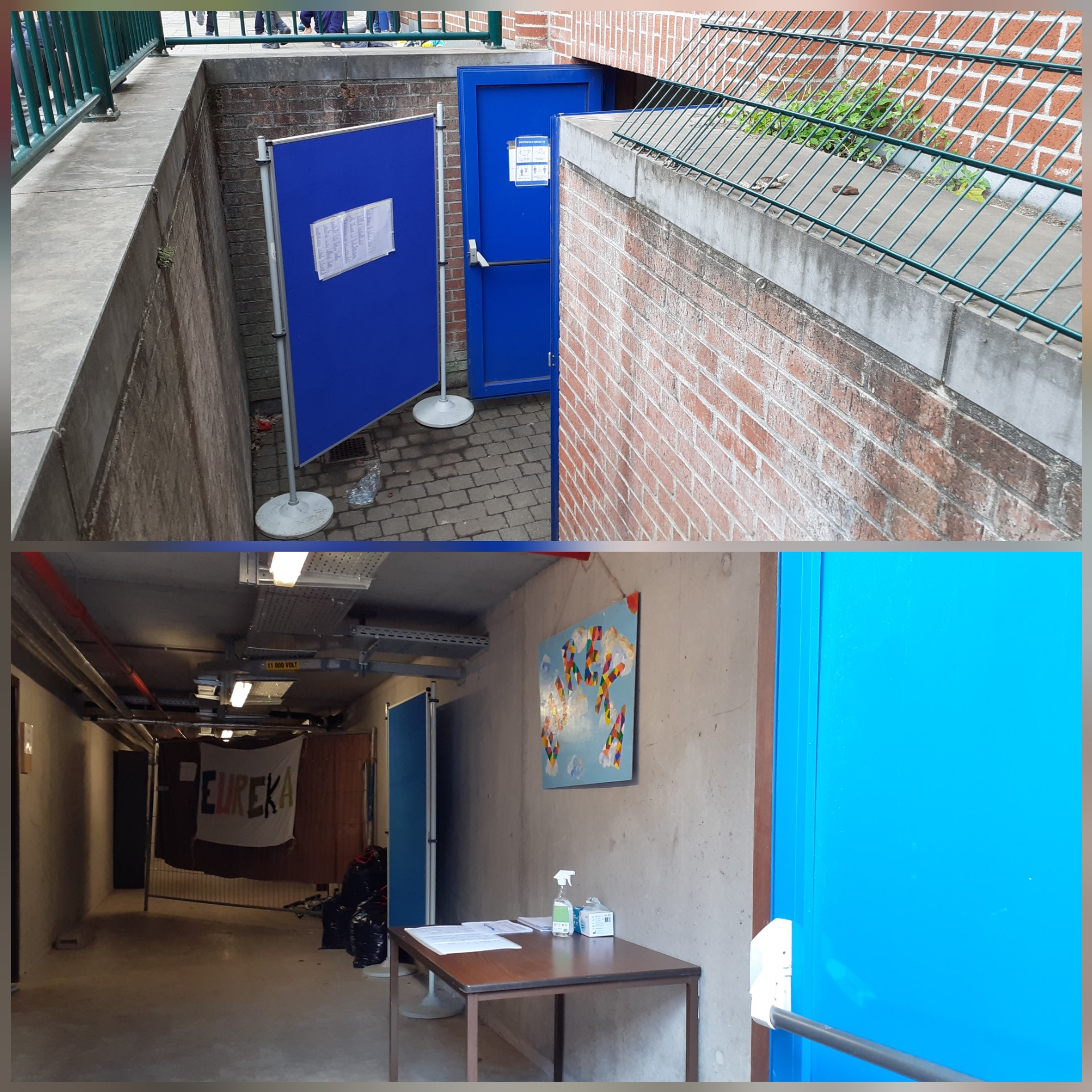
This school year, EURÊKA's activity has been strongly disrupted by the exceptional situation of COVID-19.
Since our reopening in October, the EURÊKA office has put in place all the necessary COVID-19 protection measures indicated by the school and the health authorities. We have provided the children with masks and hydroalcoholic gel and we control the access to the office. We also have a CO2 meter to monitor the air quality in the room as the EURÊKA room is located in the basement of the Erasmus building and there is no direct ventilation. We thank the students for impeccably following all the health recommendations.
The interruption of school classes and of extra-curricular activities, the introduction of on-line classes and the closure of the canteen had a direct impact on the number of lost objects with a reduction of 63% compared with the same period last school year (19 September – 20 March). But only 32% of these objects have been recovered, 78% of which were items with names.
In order to make it easier to collect the items during the week, we have improved the collection points in the different buildings. In Fabiola, for the kindergarten and P1 classes, with the help of the teachers, we send the lost items with names to the class directly. The rest of the lost items without names are collected at the collection points in the Fabiola building, in front of the canteen and near the entrance to P1.
With the arrival of the good weather, on Fridays when EURÊKA is open, we have started to bring the items outside the Fabiola building: at the gate of the P1 courtyard and at the kindergarten's outdoor access courtyard in order to make it easier for parents to collect items when they pick up their children.
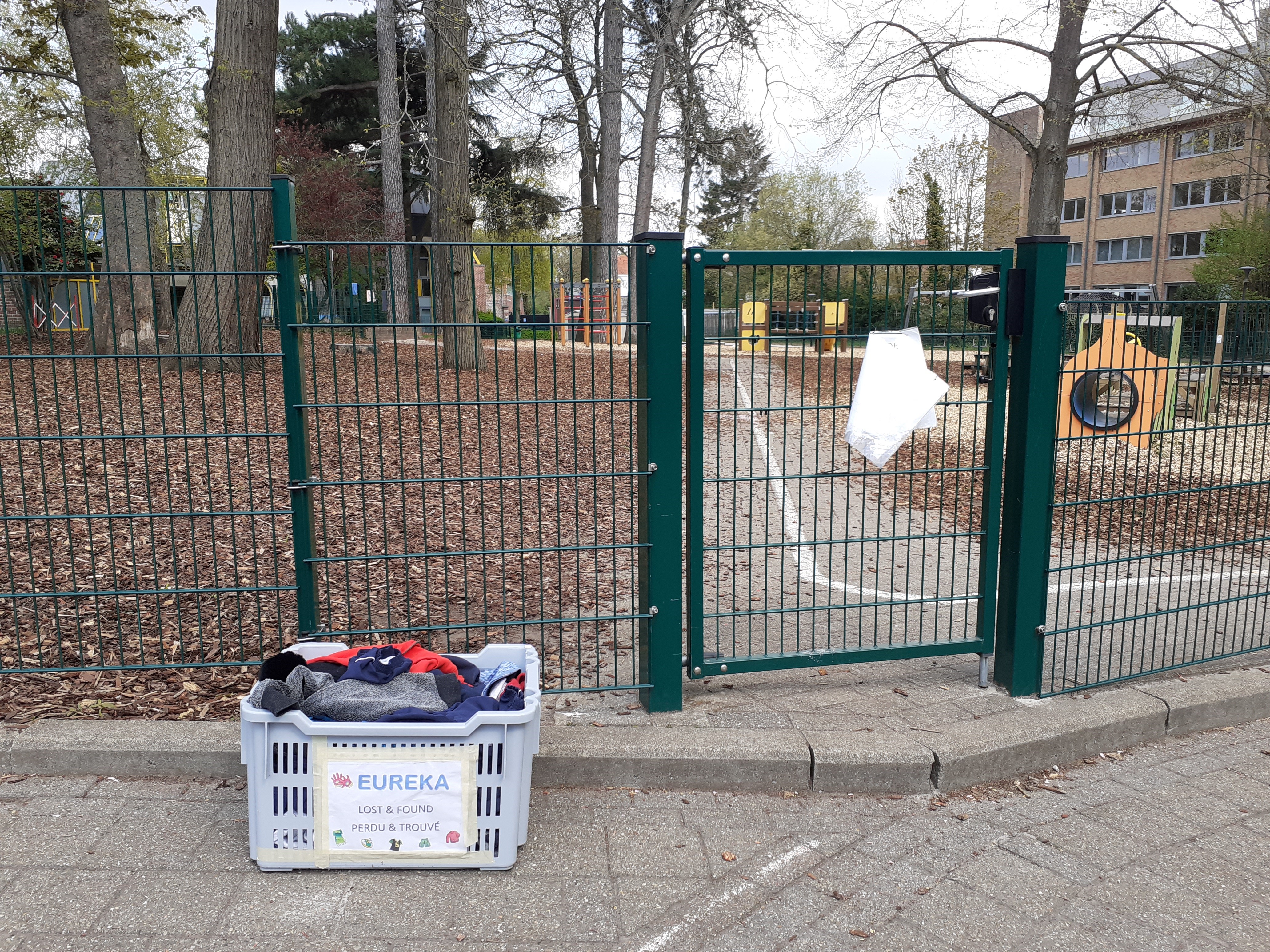
Donations were limited due to the COVID-19 measures, but it was possible to donate 10 large bags to the orphanage with which we have been working for years, La Cité Joyeuse. Thanks to the commitment of eight new parent volunteers, it is possible to ensure this new organisation and to maintain the management and the opening of EURÊKA.
If you have any questions, contact us: eureka@uccleparents.org and for more information on the office opening hours, see: Volunteer-Run Services - EURÊKA.
